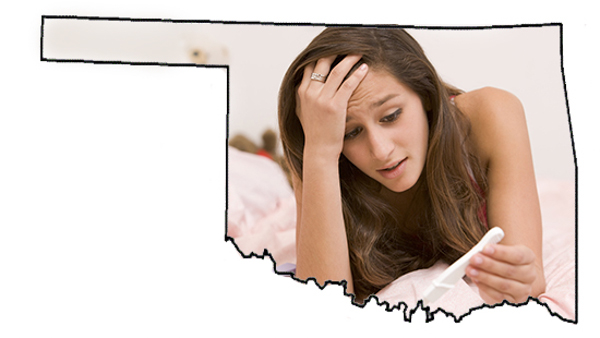Photo by: Will Gentry
Although Oklahoma’s teen birth rate is declining as of recent years, the state still ranks No. 2 in the nation for unplanned teen pregnancy, according to a report released earlier this year.
In the Tulsa World article “Oklahoma’s Teen Birth Rate 2nd-Highest in U.S., Report Says,” Kim Schutz, the director of the Tulsa Campaign to Prevent Teen Pregnancy commented on the state’s high ranking in the U.S.
“We’re moving in the wrong direction, and it’s because this isn’t on anyone’s radar,” Schutz said.
Oklahoma currently ranks only behind New Mexico.
While Oklahoma may not be reducing teen pregnancy rates as quickly as other states, not all agree with Schutz.
“I believe that there are a lot of varying issues that need to be addressed, but I believe that teen pregnancy is still on the radar with schools,” Brenda Gunter, an Oklahoma Christian University counselor, said. “I previously worked at two different agencies that specifically worked with teenage parents in the schools. The goal of one of the prevention programs that I coordinated dealt with prevention of a second teen pregnancy. Some have the support of family, but often these teens don’t have the support that they need and frequently drop out of school.”
According to the Tulsa World, a poll conducted by the Tulsa Campaign to Prevent Teen Pregnancy shows that 90 percent of Tulsans support comprehensive sex education in middle and high schools.
While sex education is usually taught in schools, it is also up to parents to equip their teens with the information they need to understand sex.
Schutz explains that the key is for parents to educate their children about safe sex and pregnancy prevention throughout their entire childhood, not just in one big talk.
“You arm them with knowledge, that’s how they protect themselves,” Schutz said.
Some argue that reducing unplanned teen pregnancies is going to take more than a lecture from a teacher.
“Teachers can recite information all day, but that is not going to stop two teenagers and their hormones,” senior Tiffani Seeley said. “I don’t know a teen mom or dad personally, but I do know of them, and I honestly do not think their pregnancies could have been prevented just by a sex [education] class.”
According to the report, Oklahoma ranks No. 1 in teen pregnancy in the 18-19 age bracket.
“I do actually know someone who was a teen mom,” junior Alexis Joyner-Mendoza said. “We went to the same schools and I know that she knew about the birds and the bees, so there wasn’t really any lack of education or awareness. She knew what she was getting into and it just so happened that her daughter was the result.”
According to Schutz, the teen pregnancy rate is related to the high school dropout rate, which in turn affects employment opportunities.
“The workforce is also affected because teenagers who give birth are often unprepared for jobs that increasingly demand a college education or extra training,” Schutz said.
Unplanned teen pregnancy can create a snowballing effect on children and family structure when the right support is not implemented, Schutz said.
“Children of teen mothers are less likely to have resources and educational opportunities in early childhood to set them on the path for success,” Schutz said. “These children instead get on the path that leads to more teenage pregnancies. You can almost write the life script for too many Oklahoma children at that point.”
According to the Centers for Disease Control and Prevention, nearly 1,700 teens between the ages of 15 and 17 years old give birth every week and nearly one in five teen births are repeat births.
Oklahoma could possibly begin to see a stronger decline of teen pregnancy at the rate other states have been seeing, Gunter noted, if the state increases education and better preventative programs.
“Education is important, but we need to focus on bringing together parents, teachers, church and community on finding ways to help educate teens,” Gunter said. “It seems that we expect the schools to be responsible for educating teens, as well as pre-teens on moral issues. Education begins in the home, both factual information as well as moral values and how to make ethical choices.”














Be First to Comment